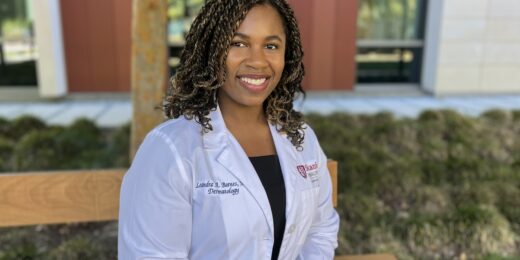Yesterday was a packed day at the third Childx conference at Stanford, with sessions covering everything from the biology of brain tumors to the ethics of gene editing and the economic shifts affecting the American dream.
"At Stanford Medicine we’ve embraced the concept of precision health, and its objectives to predict, prevent and cure precisely," said David Stevenson, MD, Stanford's senior associate dean of maternal and child health, in his opening remarks. "Maternal and child health is at the foundation of precision health, and research focused on pregnant women and children is informing adult health and our nation’s public health."
The conference was sponsored by Stanford's Child Health Research Institute, as was much of the research described in the sessions, added Mary Leonard, MD, the institute's director. "From its inception 10 years ago, the Child Health Research Institute has sought to marshal all the disciplines and expertise at Stanford to launch healthy lives," Leonard said.
One of the day's speakers whose work illustrates the power of cross-disciplinary thinking to benefit children was Carol Dweck, PhD, Stanford professor of psychology, who has spent her career investigating how having a growth mindset — the belief that traits such as intelligence or health are not fixed, but can be changed with effort — helps kids succeed.
A growth mindset gives children an advantage academically, Dweck told the audience. In a 2016 study of 162,000 Chilean 10th grade students, her team found that the achievement gap between kids with a growth mindset and those without was largest for students from the most impoverished families. In other words, a growth mindset can help the poorest students most. Yet students growing up in poverty were also much less likely to have a growth mindset than their wealthier peers.
This raises the question: Can a growth mindset be instilled? Through several experiments, Dweck's team has shown that the answer is yes. Her team developed an eight-lesson intervention for kids entering seventh grade, in which the students learned that every time you work hard at something challenging, you make more neuronal connections and your brain becomes stronger. Over the seventh grade year, students who received the intervention had rising math grades, whereas a control group's grades in math declined.
Dweck explained some of the strategies the team used to keep kids engaged with growth-mindset material, such as getting kids to write a "mentoring letter" explaining the concept to a struggling younger student, or helping teens investigate how building their intelligence could enable them to contribute to their communities.
Creating a culture of growth mindset in schools could help more children succeed, but we need to help teachers understand how to put the ideas into practice, Dweck said.
She also discussed how growth mindsets can be applied to improve physical and mental health. Kids are more empathetic in their responses to conflict, such as exclusionary or aggressive actions from peers, if they've been taught to view personality traits as amenable to growth rather than being fixed traits, she said.
And teens with health challenges — such as managing diabetes or undergoing a painful surgery — have better outcomes if they're educated to approach health with a growth mindset, Stanford pediatric surgeon Claudia Mueller, MD, PhD, has demonstrated.
"Beliefs adolescents have about themselves and their attitudes play an important role in their health, mental health and achievement over time," Dweck concluded.
The conference continued today.
Photo by Cris Gebhardt






